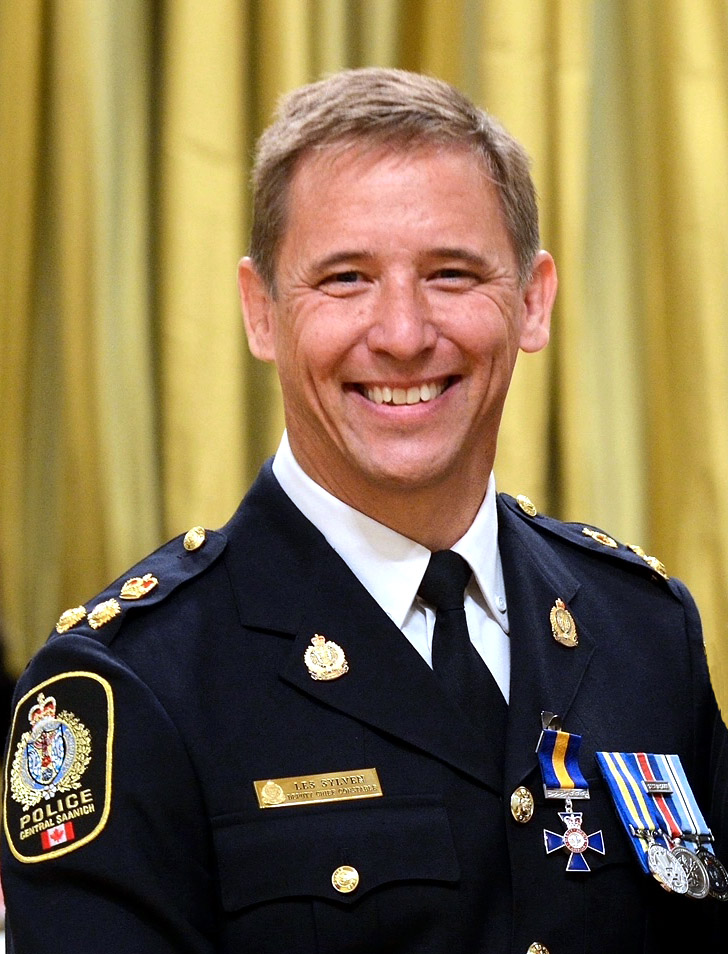
by Les Sylven
- 25 May 2021
Share:
TW: The article below discusses Suicide Ideation, Domestic Abuse, Sexual Assault, and Policing.
My first assignment as a police officer was to a mid-size town on the west coast of Canada. After about a year of training and coaching in the field, I was starting to feel at ease wearing the uniform and was beginning to learn many of the names and faces of the people in my community. During one night shift, I was sent to check on the welfare of a person who had called the police because he felt depressed and had thoughts of hurting himself.
Although I didn’t recognize the man’s name when I was dispatched to the call, when I arrived on his front doorstep I recognized the friendly face of an older gentleman who would always smile and wave whenever I drove by in my police car. He greeted me warmly and invited me to sit with him in his living room.
After about 30 minutes of quietly listening to him emotionally describe his feelings of failure, not belonging, and wanting to end his life, I suggested we leave together to find a doctor who might help. Following a short period of silence, he agreed, and we walked to my car where I safely placed him in the backseat for the short drive to the local hospital.
As we were about to leave, he asked if I would do one more thing for him. “Can you go back in the house and get rid of the handgun that’s under the pillow where I was sitting? I don’t want to do this again.” He went on to admit that the reason he called the police was to end his life. His plan was to shoot me inside the house, trusting that I would quickly shoot back and kill him.
I went inside and seized the loaded gun from where he was sitting, and after ensuring he had no other surprises for me, we continued on to the hospital to get him the support he needed. As we drove, I asked him what made him change his plan. He explained that as soon as I arrived and we began to talk, he could see that I was a very young man with a full life ahead of me, and that he couldn’t bring himself to shoot me or put me through the experience of killing him.
Calls like this would soon become common for me and I would go on to experience much greater risks, tragedies, and triumphs. However, it is a call that I still remember today because it began a three-decade-long journey to find ways to effectively cope with a profession that operates in the brightest and darkest places of the human experience.
In those early years, I tried a variety of different ways of coping. Most were constructive and a few were not. About a year after this incident, my career took a different trajectory when I enrolled in a meditation training program. After several months of the daily stillness practice, I began to experience some of the outcomes reported in the research on mindfulness in the workplace (Good et al., 2016).
For example, I felt that my regular meditation practice enhanced my capacity to pay attention by reducing the frequency of my mind wandering. Whether interviewing a sexual assault suspect, responding to calls of domestic violence, or conducting close surveillance of organized crime members intent on murdering each other in public, I believe this benefit of daily meditation was connected to my effective job performance as a police officer.
Whether interviewing a sexual assault suspect, responding to calls of domestic violence, or conducting close surveillance of organized crime members intent on murdering each other in public, I believe this benefit of daily meditation was connected to my effective job performance as a police officer.
With time, meditation practice also strengthened my ability to notice my thoughts, particularly when I was excessively negative, or I found myself ruminating about investigations that were unsolved or that wouldn’t see the inside of a courtroom. This enhanced ability to self-regulate my thinking had a positive impact on my emotional well-being at work, but more importantly, it impacted how I showed up at home for my family when work was over.
It was during the last 15 years of my police career, when I gradually moved from front-line duties to the responsibilities of formal leadership, that I felt the closest connection to the outcomes of meditation. Relying on my daily practice to support my personal leadership commitment to be present for others, I experienced what Goldman Schulyer et al. (2017) called “moments of waking up.”
These brief moments often occurred for me inside the police station when I felt a deep sense of connection and compassion for the police officers that I was responsible for leading. As they navigated their own challenging policing experiences, my ability to be present for them helped establish trusting relationships that fostered open and honest conversations about what we were all going through, both on and off the job.
I also had these moments of clarity outside the police station during public leadership challenges. In my role as a police chief, I would often stand in front of the media to talk about significant tragedies that had occurred in our community. Finding moments of calmness, compassion, and composure within myself during these difficult situations was indispensable to my effective practice of leadership. Collectively, all of these experiences led me to conclude at the end of my police career that meditation had been an invaluable tool and that I was very lucky to find it so early on.
Yet, I am left with several unanswered questions. For example, is it just me that has had these experiences? How would other police leaders who practice meditation describe their practices of leadership? What similarities and differences might exist among our personal accounts? Do these leaders believe the practice of meditation should be supported as a potential tool for all police officers and be placed in the curriculum of police leadership development programs?
Fully aware of the methodological challenges of researching a topic as vague, deeply personal, and overly hyped as mindfulness and meditation (Van Dam et al., 2018), I am nonetheless attempting to find answers through an exploratory qualitative study with a diverse group of senior police leaders from across Canada who meditate.
Beginning with semi-structured interviews and a series of focus groups, we have recently begun to carefully explore these questions together. Although early, we have already established that the collective goal of our inquiry is to identify new insights and actionable findings for the profession of policing regarding meditation and mindfulness.
While this research project might seem superficial when considering the deeper public discourse occurring about the role of policing in society, I know that the evolution that lays ahead for policing will take time to occur. Supporting police officers with mental training through meditation that enhances their job performance, well-being, and relationships could play a foundational part in this change. At the end of the day though, to borrow a well-used police expression, my co-researchers and I will first need to “follow the evidence.”
References
Goldman-Schuyler, K., Skjei, S., Sanzgiri, J., & Koskela, V. (2017). “Moments of Waking Up”: A Doorway to Mindfulness and Presence. Journal of Management Inquiry, 26(1), 86–100. https://doi.org/10.1177/1056492616665171
Good, D. J., Lyddy, C. J., Glomb, T. M., Bono, J. E., Brown, K. W., Duffy, M. K., Baer, R.A., Brewer, J.A. & Lazar, S. W. (2016). Contemplating mindfulness at work: An integrative review. Journal of Management, 42, 114-142. https://doi.org/10.1177/0149206315617003
Van Dam, N. T., van Vugt, M. K., Vago, D. R., Schmalzl, L., Saron, C. D., Olendzki, A., Meissner, T., Lazar, S. W., Kerr, C. E., Gorchov, J., Fox, K. C. R., Field, B. A., Britton, W. B., Brefczynski-Lewis, J. A., & Meyer, D. E. (2018). Mind the hype: A critical evaluation and prescriptive agenda for research on mindfulness and meditation. Perspectives on Psychological Science, 13(1), 36-61. https://doi.org/10.1177/1745691617709589


